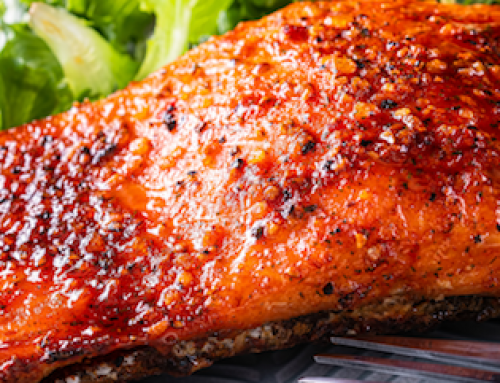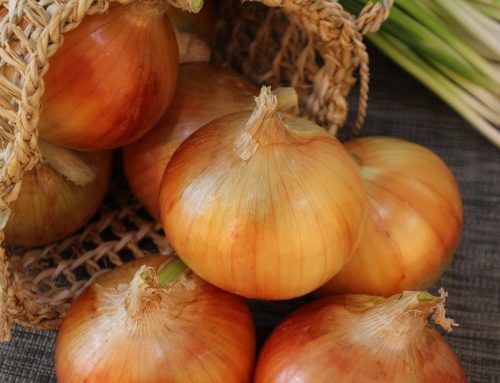In preparation for my appearance on CTV Morning Live to talk about bug repellants, I became really interested in looking at what the research has shown to be the most effective ways to ward off those pesky mosquitos and ticks that are so prevalent this year. I consulted the Environmental Working Group website, which is a highly reputable source of research, and what I found was actually quite surprising – mainly that Deet is not quite the bad guy that it has been made out to be by many of us wanting to avoid as many chemicals as possible in our environment. I also learned that some of the natural repellants can be problematic given the concentration of essential oils that can cause allergic reactions for some people.
Is DEET Really Bad For You?
Did you know that “DEET was historically believed to work by blocking insect olfactory receptors for 1-octen-3-ol, a volatile substance that is contained in human sweat and breath. The prevailing theory was that DEET effectively “blinds” the insect’s senses so that the biting/feeding instinct is not triggered by humans or other animals which produce these chemicals. However, more recent evidence shows that DEET serves as a true repellent in that mosquitoes intensely dislike the smell of the chemical repellent” (Wikipedia). While DEET is not a carcinogen, DEET products get a bad rap because long-term exposure may cause moodiness, insomnia and impaired cognitive function [source: Peterson]. Studies have shown that after high concentrations of continued exposure, DEET can cause hypertrophy of the liver and kidneys as well as stimulation of the central nervous system which can cause tremors and seizures [source: Extonet.] However, according to the EWG, an extensive review of the scientific literature found few reports of serious health hazards when the chemical was used sparingly, as the maker’s instructions specify.
When choosing a bug repellant, there is a balance between protecting ourselves against the bites and the diseases that may be carried in the bite and the toxicity of the product we on put on our skin to protect us. The other factor to consider is that different repellants work for different circumstances. Factors to consider include the age of the person, are you pregnant, where are you travelling to, what bug are you wanting to protect yourself against.
Click on this link to see the EWG’s comprehensive suggestions on how to choose a bug repellant: http://www.ewg.org/research/ewgs-guide-bug-repellents
Natural Mosquito Repellents
Although the above repellents listed with the EWG are the more promising, there have been preliminary studies on the following ingredients:
- Fennel – A small study by researchers at Seoul National University in Korea found that a spray mosquito repellent containing 5% fennel oil was 84% effective after 90 minutes and a repellent cream with 8% fennel oil was 70% effective after 90 minutes.
- Thyme – In one study, carvacrol and alpha-terpinene, two compounds derived from the essential oil of thyme, were found to have significantly greater repellency than a commercial DEET repellent. The researchers suggest that a spray made with 2% alpha terpinene is a promising natural mosquito repellent. However, don’t try to make a thyme oil repellent at home- it is too irritating and strong-smelling to be used at effective concentrations above 25%.
- Clove oil – Two studies have found that undiluted topical clove oil is active against mosquitoes. However, like thyme oil, clove oil should not be applied undiluted to skin as a homemade repellent.
- Celery extract – A Thai study compared 15 mosquito repellents with a topical extract from celery. The researchers found that the extract did not irritate the skin or cause a burning sensation. It was found to be active against a wide range of mosquito species comparable to a 25% DEET formula.
- Neem oil – An extract from the tropical neem tree, neem oil has insecticidal compounds called azadirachtins.
- Vitamin B1 – Vitamin B1 is often taken to help repel mosquitos but one study suggests this remedy may be useless. Researchers at the University of Wisconsin study tested B1 with a larger sample of human subjects and found no effect of vitamin B.
- Garlic – Another popular theory is that ingesting garlic can provide protection against mosquitoes. A University of Connecticut study examined this claim with a randomized, double-blinded, placebo-controlled crossover study. The data didn’t provide evidence of significant mosquito repellence. However, subjects only consumed garlic once, and the researchers say that more prolonged ingestion may be needed.
- Avoid eating a lot of salt or potassium as it increases the lactic acid production in our body and makes our sweat attractive to mosquitos (they can detect us 100 feet away!)
Natural Mosquito Repellent Ingredients
If you are making large amounts of mosquito repellent, a good rule of thumb is to mix the repellent so it’s 5-10% essential oil, so mix 1 part essential oil with 10-20 parts carrier oil or alcohol. For a smaller batch use:
- 10-25 drops (total) of essential oils
- 2 tablespoons of a carrier oil or alcohol
The essential oils that work well against mosquitoes are:
- cinnamon oil
- lemon eucalyptus oil
- citronella oil
- castor oil
Safe carrier oils and alcohols include:
- olive oil
- sunflower oil
- any other cooking oil
- witch hazel
- vodka
Natural Bug Repellent Recipe (Mosquitoes)
http://chemistry.about.com/od/healthbeautyprojects/a/naturalmosquitorepellent.htm
Mix the essential oil with the carrier oil or alcohol. Rub or spray the natural insect repellent onto skin or clothing, using care to avoid the sensitive eye area. You’ll need to re-apply the natural product after about an hour or after swimming or exercise. Unused natural insect repellent may be stored in a dark bottle, away from heat or sunlight.
As far as really helpful specific do’s and don’ts around protecting ourselves from bug bits, I again invite you to the EWG website where they have put together a great list of helpful tips: http://static.ewg.org/reports/2013/bug_repellents/2013_EWGs_Bug_Repellent_Tips.pdf
Decrease Reactivity and Strengthen Immunity
And of course, there are several steps we can take to decrease our reactivity to bug bites, and to strengthen our immune systems against the diseases that bug bites might carry:
- Minimize consumption of sugars and refined carbohydrates as sugar weakens the immune system and contributes to inflammation in the body.
- Increase our consumption of colorful veggies and fruits which contain bioflavinoids and can decrease the amount of histamine our body produces (histamine contributes to the redness and itchiness of a bite).
- Stay well hydrated
- Supplement with Vitamin D, Vitamin C, Omega 3 fatty acids and probiotics to additionally strengthen the immune system.
.






